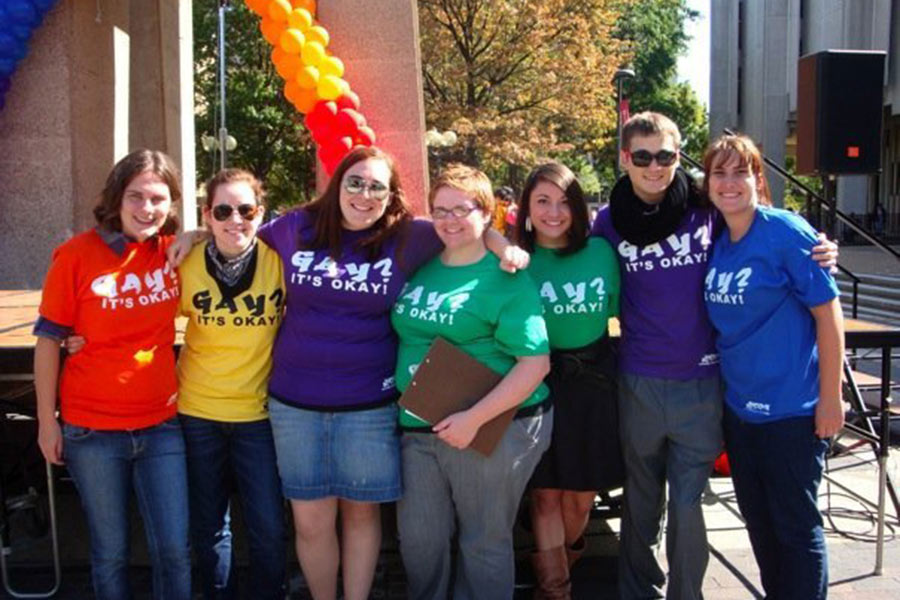Since 2004, Temple University has offered a unique interdisciplinary minor in the Women’s Studies Department of its College of Liberal Arts, known as the Lesbian, Gay, Bisexual and Transgender Studies minor. The LGBT Studies minor incorporates classes from multiple departments outside of Women’s Studies, including political science, religion, history, sociology, public health, media studies and production. The minor effectively combines theory with history, literature and politics to give students a broad overview of issues concerning the LGBT community.
One of the founders of the minor, Dr. Patricia Melzer, who teaches the courses “Sexual Differences in the Cinema” and “Gay and Lesbian Lives,” discussed the significance of such a minor for students.
“[Sexuality] is of considerable value to understanding how desire not only shapes our personal interactions, but how various manifestations of human sexuality are viewed and at times judged by our communities more broadly,” Melzer said. “How in particular non-normative sexualities are marginalized is important to examine if we want to assess how this affects important social areas such as education, health care and, ultimately, policy-making regarding social services and permissible public behavior.”
When Melzer and other faculty began to implement the minor more than a decade ago, it was one of the first minors offered at an American university that dealt directly with sexuality studies, without being an attachment to a Women’s or Gender Studies curriculum.
There are approximately 30 students in the minor currently, many of whom identify as LGBT, but this number also includes allies.
Why do students choose this minor? Dr. Rujuta Mandelia, advisor to all students in the Women’s Studies Department, said the minor “gives [students] an edge in the political and social climate, especially if they are interested in social causes. If they identify as any of the sexualities on the spectrum, this also becomes a safe space for them.”
The safe space that this minor provides to its LGBT-identifying students evidently extends far outside of the classroom, in that many of its students aspire to be involved in advocacy work in the future, if they are not involved already.
Riley MacDonald, a junior Women’s Studies major with the LGBT minor, said: “I know that whatever route I take professionally will involve activism, and it is important to remember that the ‘trickle-down’ method doesn’t work and that we have to start from the bottom up. Additionally, I’ve learned many important lessons about how systems — not individuals — marginalize people.”
Ian Watson, a self-proclaimed “super-duper senior” and photojournalism major, explained what brought him to the minor.
“I grew up in a very socially conservative area, and a lot of LGBT topics were very lost on me,” he said. “A lot of my LGBT friends were bullied growing up, and I fear that my ignorance on some issues may have made me less able to help. I didn’t want to contribute to that any more, and the social circle that I was in that discussed these issues was also problematic in its own way, so I sought academia’s help.”
Yet the most direct correlation the minor provides between students’ studies in the classroom and the advocacy track is the minor’s required internship. Watson, for instance, uses the skills he has acquired in photojournalism to teach the art of self-expression through photography at Morris Home, a Philadelphia shelter for trans individuals.
Harmony-Jazmyne Samira Rodriguez, a Women’s Studies major who plans to work for a nonprofit in the future, said: “There have been many trans women who’ve fought for the community despite hardships during their activism and that’s been what’s inspiring me to continue on — that I can break new ground and be as helpful to trans women who come after me as they have been to trans women who went after them.”
The Women’s Studies Department at Temple has clearly found a direct way to incorporate LGBT studies with activist work. Besides the required internship, other courses students may take include “Queer Theory,” “Trans Theory,” “AIDS and Society,” “LGBT Representation” and “American Sexuality,” among many others.
“We are on the rise within the College of Liberal Arts; our enrollments are up,” Mandelia noted. “We have a large group of students who are coming in that are extremely enthusiastic and want to know more about LGBT studies.”
Julie Seidman is a senior at Temple University, studying Russian and communication studies.
